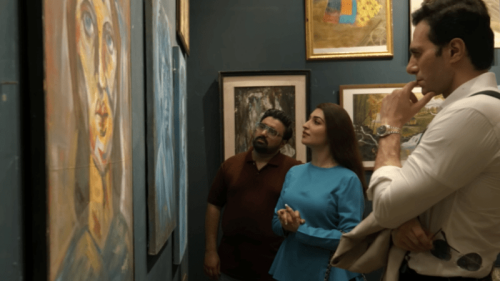ISLAMABAD, Sept 8: Are classical singers in Pakistan on the way out? Are we, as it were, arranging a decent burial to a phenomenon that is supposed to be a living tradition of our musical heritage?
“Maestro” Niaz Ahmed, as announced by the Pakistan National Council of the Arts (PNCA) in its invitation for performance of the artist on Saturday evening, may not be a great singer but when he spoke of the plight of the classical singer in between his performances, he sat the audience thinking about the scenario when the more noisy, more glittering forms of music (maybe, perhaps a demand of a more noisy more agile world!) will elbow out the quintessence of a form that, according to its exponents, in the personality of a legendary Mian Tansen in the good, old days could have lightened lamps, stopped marauding elephants in their tracks and cured the sick.
“Is it not a very pathetic state of affairs that people are ready to pay a lakh of rupees to any pop music singer while they are not ready to pay even ten thousand rupees to a classical singer?” said Niaz Ahmed very innocently, but the question did bring to the mind’s eye the days when Radio Pakistan served as the real patron of these classical artists by employing them, and Radio and PTV gave long slots to their performances. But perhaps the times have changed, and the society wants to hear even Iqbal in the new “harmony” created in the “din and noise” (pardon genuine pop lovers) of the plethora of instruments of a glittering stage with young men and women dancing around their beloved artists singing Zamanay Kay Andaaz Badley Gaye (the times have changed).
Niaz Ahmed is the grand son of the legendary Ustad Abdul Karim Khan of Kiarana Gharana (one of the schools of classical music based on the style of particular families which were generally patronized by local Nawabs and Rajas in pre- independence days) and he also gave a small sample from the late Ustad’s Thumri of Bahiravi (thumri is traditionally composed in what is called the Khari Bolis like Bhojpuri and Brijbahsaha, and among the numerous style the Punjabi and the Lucknavi are well known. There are several Raag in which it is sung. In this case, it was based on Raag Bahiravi, which has been derived from the word Bairava that means “the fearsome sounding one”). The Bol (words) were: Kaisay Aaoon Jamuna Kay Teer (How should I come across Jamuna). He also sang a Pahari Ki Thumri. With Bol Deikhay Bina Nahin Chain Sanwarya (There is no ease, no comfort seeing the beloved), besides a number of Ghazals.
Niaz Ahmed is basically an exponent of Harmonium (an instrument believed to have been brought by missionaries here. It is a portable, organ-like instrument that has bellows using the hands). One may not agree with script in the invitation that he excels in singing out almost all forms of our music, right from classical to Ghazal, but certainly he has been one of the outstanding composers for PTV and PBC with over 2,000 compositions to his credit. This is also a fact that many of the present day renowned voices made their debut by singing his compositions. He has received many awards, including TV’s award of best composer thrice. He gave one solo performance of Kosh Dhani Malkos, a mixture of Dhani Kos and the popular Raag Malkos, while one had thought he might present many such items because solo harmonium performances were described as his specialty by Zahid Farani, a music lover, who introduced the artist.
The accompanying instrumentalists were Mohammad Ajmal on Tabla (mature, excellent performance gave, what may be described as a musical maturity to the evening) and Mohammad Ashraf on the keyboard, Imran on violin, and Umeed Ali Khan on harmonium.
One could see a number of music lovers including, Zia Jallundhari, the former MD TV, and Carrol Long, the Unicef representative in Pakistan, and Aliya Imam at the function.— Mufti Jamiluddin Ahmad













































Dear visitor, the comments section is undergoing an overhaul and will return soon.